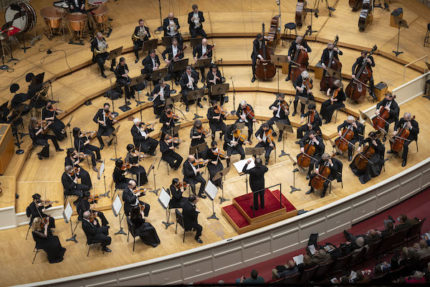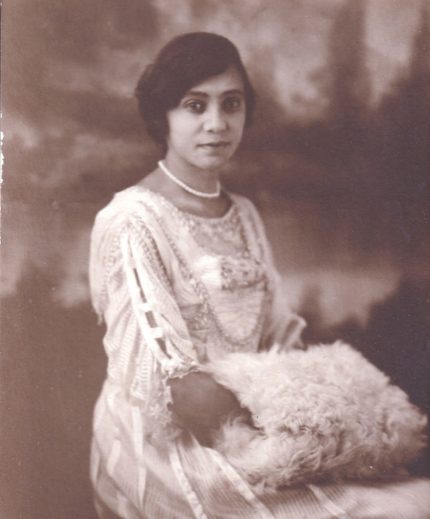Muti, CSO give Florence Price symphony its belated local debut

On June 15, 1933, Frederick Stock ascended the podium at the Auditorium Theatre to conduct the world premiere of the Symphony in E minor (No. 1) by Florence Price. The fact that a large-scale symphony composed by a black woman in that era was being performed at all by a major American orchestra is a striking example of the forward-looking nature of the CSO music director.
Yet after that successful debut, Price’s music was largely ignored for the remaining two decades of her life and career. Stock encouraged Price to write a piano concerto, yet he never programmed the finished work nor any subsequent Price scores. Price sent repeated entreaties to Serge Koussevitzky, music director of the Boston Symphony Orchestra and a champion of new music, yet he passed on Price’s music as well. Subsequent CSO music directors did nothing to champion Price’s cause.

Posthumous vindication has finally come. Price’s music is now being performed and recorded extensively; last month the DG disc of Price symphonies by Yannick Nézet-Séguin and the Philadelphia Orchestra won a Grammy as the top orchestral performance.
Decades after the composer died in obscurity in 1953, the Chicago composer’s local history came full circle Thursday night with Riccardo Muti leading the Chicago Symphony Orchestra in the belated local premiere of Price’s Symphony No. 3.
Written in 1940 a decade after her first essay in the genre, Price’s Third Symphony (the Second is lost) is scored for a much larger orchestra than its predecessor with five horns and a huge percussion battery requiring six players (not counting timpani). The music is cast in the traditional four movements and reflects black musical elements—in the composer’s words, it is “intended to be Negroid in character and expression.”
It was a gracious gesture for Muti to program this work—helping to somewhat aright the balance for nearly a century of neglect of Price’s music in the city she called home for most of her professional life. More broadly, programming Price’s symphony offers a belated official recognition of the composer as a pioneering black woman in classical music, locally and nationally.
That said, Price’s Third Symphony is not exactly a neglected masterpiece. There are passages of her engaging brand of pastoral-nostalgic lyricism and the rustic “Juba” movement has its quirky charms. But much of the symphony has a predominant lightness of being, and is wanting in development, depth and scoring finesse.
A dramatic slow introduction seems to set the scene for a compelling large-scale canvas, soon leading into a syncopated theme first heard in violas. The second theme is almost an outright crib of the famous English horn melody from the Largo of Dvořák’s Symphony No. 9 (itself inspired by the spiritual “Goin’ Home”). The opening Andante-Allegro movement could charitably described as ramshackle—jumping herky-jerky from one idea to the next and seeming to end multiple times for no discernible reason.
The middle movements are more successful. The Andante is cast in Price’s lyrical-nostalgic vein with a soulful bassoon solo, sensitively rendered by Keith Buncke, amid the meandering lines and striding overblown climax. The lightweight third movement “Juba” seems out of place in a formal symphony yet its lively barnyard fiddle-dance has undeniable off-center charm. The lumbering finale is the least successful movement where Price’s heavy scoring and tendency for sonic overkill are in roughly inverse proportion to the musical substance.
Ultimately, despite its appealing moments, Price’s Third Symphony never coheres into a cogent and convincing unified work. The “Juba” movement is increasingly being excerpted for pops and Fourth of July programs, which seems a more apt and natural home.
Under Muti’s direction, the orchestra’s performance lacked nothing in polish nor commitment in this belated CSO premiere. The conductor smoothed over the score’s rough edges as much as possible, while giving full unapologetic rein to the most bombastic passages.
The Price symphony was preceded by music from another African-American composer, Mother and Child by William Grant Still, also heard in its CSO debut.
Retooled for string orchestra from the middle movement of a suite for violin and piano, this is the kind of richly lyrical string piece that is primo carne for the CSO music director. Leading sans baton as he did in the symphony, Muti drew a richly upholstered performance of this lovely miniature—Muti managing to make Still’s homespun folk idyll sound convincingly like an Italian opera intermezzo.
The first half of the program was devoted to Beethoven.
This week’s performance of the composer’s Symphony No. 4 marks the final installment of Muti’s Ludwigus Interruptus cycle, begun in 2019-20 and abrogated by pandemic cancellations.
Muti has given us some of the finest Beethoven of his Chicago tenure this season, not least the revelatory “Eroica” that opened the CSO season last fall. He has programmed the Fourth Symphony on only one previous occasion in Chicago nine years ago, and Thursday night’s performance emerged as fresh and energized as that last outing.
Once again, Muti distilled an air of mystery in the slow introduction, drawing the anticipation out spaciously before swinging into the spirited main theme. The movement’s optimistic energy was given unbridled elan without being overdriven, dynamic marking and tempo shifts fluently handled throughout. If not the last word in charm, the Adagio was taken at a flowing tempo, the expressive profile relaxed or assertive as required.
A vigorous Scherzo and exuberant finale sealed the performance, highlighted by punchy tuttis and impressively seamless agility by the the violins in their running figurations.
The evening led off with Beethoven’s Egmont Overture. Muti led a weighty performance, underlying the brooding drama of the main section, while giving the title hero’s posthumous triumph due brassy victory at the coda.
The program will be repeated 1:30 p.m. Friday and 8 p.m. Saturday. cso.org
Posted in Performances




